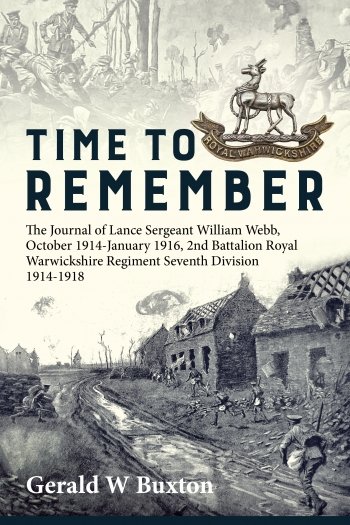-
Załączniki bezpieczeństwa
Załczniki do produktuZałączniki dotyczące bezpieczeństwa produktu zawierają informacje o opakowaniu produktu i mogą dostarczać kluczowych informacji dotyczących bezpieczeństwa konkretnego produktu
-
Informacje o producencie
Informacje o producencieInformacje dotyczące produktu obejmują adres i powiązane dane producenta produktu.HELION
-
Osoba odpowiedzialna w UE
Osoba odpowiedzialna w UEPodmiot gospodarczy z siedzibą w UE zapewniający zgodność produktu z wymaganymi przepisami.
William Webb was born in Warwick, England, and joined the 2nd Battalion Royal Warwickshire Regiment in 1894 at the age of fourteen. In 1899, he sailed to South Africa with his regiment to fight in the Boer War; later they joined Lord Roberts Army in Bloemfontein and marched to capture Johannesburg and Pretoria, continuing on to fight at Diamond Hill, Belfast, and Komati Poort. At twenty-one years old he was awarded the Queen’s South Africa medal with six battle clasps for his service. When the First World War started in 1914, the 7th Division was formed comprising of the 20, 21, 22 and 91 Brigades, most of which were manned by serving regulars returning from outposts in the British Empire. The 2nd Battalion Royal Warwickshire Regiment, part of the 22 Brigade, landed in Belgium on 4 October 1914. Lance Sergeant William Webb, now thirty-four years old, accompanied the regimental field doctors in the frontline and led his stretcher bearers to recover the dead, sick and wounded. They worked under constant fire from enemy artillery, snipers and machine-guns, often knee-deep in mud, cold and wet. The Warwickshire Regiment fought in many battles during the First World War including the First, Second and Third Ypres, Neuve Chapelle, Aubers Ridge, Givenchy, Festubert, Loos, the Somme, the retreat to the Hindenburg Line, and Arras and Vittorio Veneto (Italy). Their actions in these battles are described in the book. William Webb’s story was graphically recorded in his recently discovered journal, covering actions from October 1914 until January 1916. During the Battle of Loos (September 1915), the Royal Warwickshire Regiment suffered a devastating blow, losing 19 officers and 517 men including their commanding officer, Colonel B R Lefroy. His last words, recorded from the 22nd Field Ambulance after he was fatally wounded on 25 September 1915, were documented in this journal. Lance Sergeant William Webb, together with his stretcher bearers, worked relentlessly under enemy fire for eight sleepless days and nights recovering their dead and wounded comrades. He was ‘Mentioned in Despatches’ for gallant and distinguished service in the field during the Battle of Loos. By January 1916, there were very few survivors from the original 2nd Battalion Royal Warwickshire Regiment who had landed in Belgium. From 1916 until the end of the war in November 1918, the Warwickshires continued to fight and their actions have been described from battalion records. Time to Remember is an important contribution to understanding the dangers and discomforts that ordinary soldiers went through whilst fighting in the frontline during the First World War.








